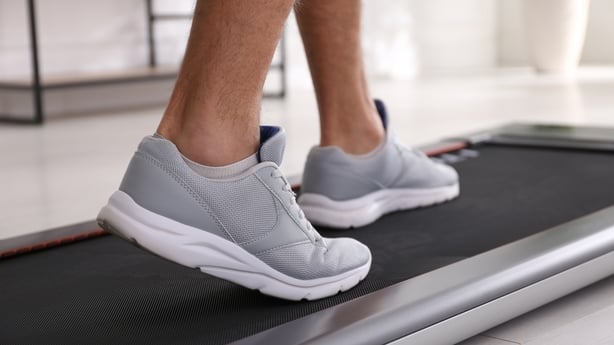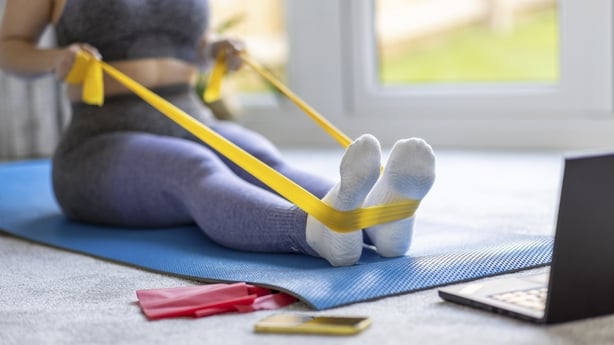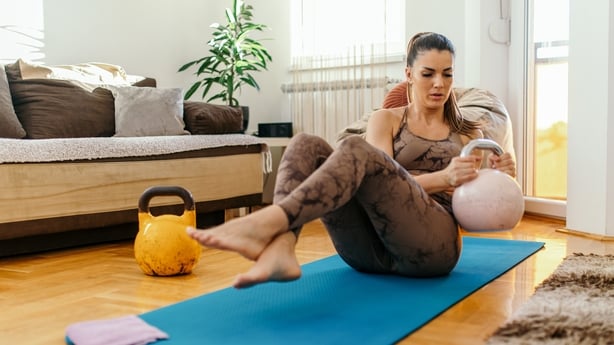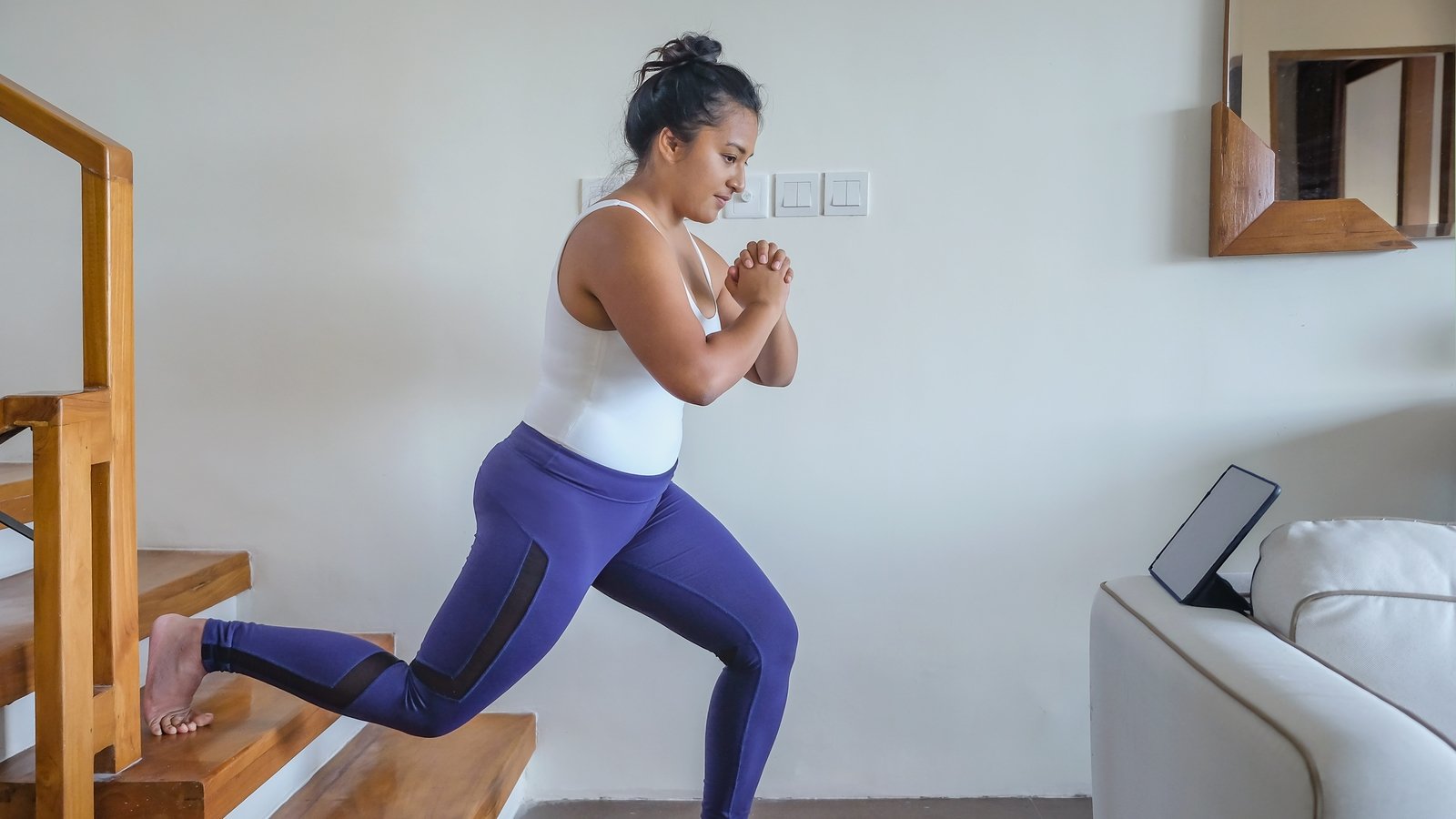Physiotherapist Aisling Frawley joins Laura Fox on RTÉ 2FM to share some practical ways to improve your day-to-day fitness. Listen back above.
If you have no interest, time, or money for going to the gym, you may be looking for some practical ways to improve your fitness at home.
According to Aisling, the first and most straightforward way to up your fitness at home is by taking a brisk walk for 20 – 30 minutes at least two to three times a week.
“If you start with a walk every single day, you are increasing your health benefits,” she says, noting that people can start with as little as five minutes and then build their way up.
As long as your heart rate is rising, enough so that you are a little out of breath as you walk, you should enjoy the benefits of increased fitness, such as heart health, bone health, and even quality of sleep.

Once you have your daily walk down, you may want to start challenging yourself with mobility or weight training.
If you can’t face joining an in-person class, you could consider an online session or a YouTube yoga tutorial. The main thing is to commit to 20-30 minutes of good quality movement.
“It’s quality over quantity and consistency over intensity,” insists Aisling.
If you don’t fancy yoga or Pilates, you can simply do 10 repetitions of a range of movements such as squats, lunges, push-ups, and sit-ups, followed by some plank work.

When it’s time to bring weights into your home workout, Aisling suggests investing in some core equipment that will see you through years of training, such as two sets of two-kilo dumbbells.
Rather than running out to buy bigger weights or fancier equipment, try to achieve a higher number of repetitions or to slow down the movement to achieve better control.
“You can actually change things up quite a lot,” she promises. “There are so many different variables when it comes to training.”
For example, if you have been doing your squats, challenge yourself to take five seconds to lower yourself down, followed by a quick stand back up.
“That’s just changing the tempo of the exercise and therefore enhancing the muscle adaptability or the growth or the strength.”

If you have no interest in tracking your calories, sleep, and steps with a smart watch, Aisling suggests simply listening to your body.
“It is the best monitor of adaptation and growth,” she insists. “I think sometimes we don’t listen to it enough.”
Rather than checking your weight or how you look in the mirror, the physio suggests taking note of how your fitness can improve your mobility and energy.
Maybe you’re going further on your walks, sleeping better at night, carrying in extra bags from the car after a shop, or simply going about your day with a bit more energy. All of these factors can encourage you to keep up the good work.
To listen to the full interview and learn more at-home fitness tips, listen back above.

